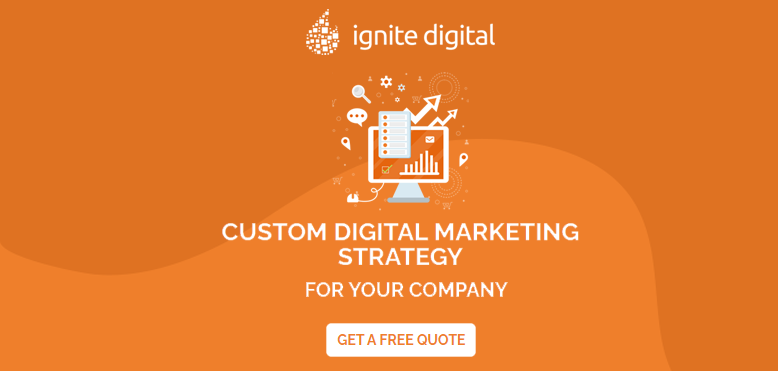Are you feeling overwhelmed and confused, struggling to reach potential clients who are searching for mental health support? Are your competitors ranking higher in search results on Google, while yours gets lost back somewhere on the fourth page?
Learning how to use SEO keywords tailored specifically for mental health practices can help make sure that your services reach a wide audience.
By understanding the basics of SEO and content marketing, you can channel the power of mental health keyword research validations into an effective tool for reaching out to those individuals who need your care.
Read on as we talk about SEO basics, given through examples from real-life cases in which using SEO keywords for mental health has helped clinicians get ahead of their competition and boost website visibility!
What is Mental Health SEO and How Can it Help Improve Your Rankings
Mental Health SEO is a specialized type of search engine optimization that specifically targets mental health websites. The ultimate goal is to improve the ranking of these websites on search engine result pages.
The challenge, however, lies in understanding the intricacies of mental health and ensuring that the content is relevant and informative to potential clients.
Mental Health SEO involves a careful analysis of the target audience, keyword research, and a deep understanding of the psychological and emotional aspects of mental health.
By implementing tailored SEO for therapists’ strategies, mental health websites can improve their visibility and attract more traffic, leading to increased exposure, credibility, and ultimately, improved rankings.
Keyword Research Strategies for Mental Health SEO
Keyword research is an essential part of establishing a strong online presence. For mental health professionals, this process is critical to ensure that patients are finding the right resources and support when they need it.
Effective Mental Health SEO keyword research strategies involve selecting unique phrases that reflect both the services offered and the intended target audience.
For example, phrases such as “mental health counseling near me” or “online therapy for anxiety” may be highly relevant for those seeking specialized help from a professional.
By incorporating these SEO keywords for mental health on your website and throughout your online content, you can enhance your visibility and broaden your reach to those in need of mental health support.
Best Practices for Implementing Mental Health Keywords on Your Website
As the world becomes increasingly digital, mental health resources and information are more accessible than ever before. If you’re in the mental health field, you likely already know the importance of having a professional website.
However, including the right Mental Health SEO keywords in your website’s content is equally crucial. SEO keywords for mental health can help your website rank higher on search engines, making it easier for individuals seeking resources to find you.
When implementing these keywords, it’s important to keep in mind the tone of your website. Focusing on informative and professional language will not only improve your SEO, but it will also establish credibility in the eyes of your audience.
By taking the time to incorporate best practices for mental health keywords on your website, you can improve your online presence and make a positive impact on those seeking support.
Understanding the Impact of Metadata and Other SEO Signals on Mental Health Rankings
When it comes to mental health, there are a wide range of factors that can contribute to an individual’s wellbeing.
One of the lesser-known factors that can play a significant role in mental health rankings is metadata and other SEO signals. These signals provide important information about a website’s relevance and authority, which can impact how it ranks in search engine results pages.
Understanding the impact of metadata and other SEO signals on mental health rankings is crucial for mental health professionals, as it can help them to ensure that their websites are properly optimized for search engines and that they can reach patients and clients who need their services.
So, if you’re a mental health professional looking to improve your online presence, it’s worth taking the time to understand how SEO for therapists works and how it can impact your practice.
Leveraging Psychological Insights to Optimize Keywords
Understanding the psychological principles behind keyword usage can greatly optimize your SEO for therapists’ efforts, particularly in the context of mental health.
By utilizing wording that resonates with potential clients seeking mental health services, your website can increase its visibility and appeal.
For instance, incorporating language that evokes compassion and understanding, such as “caring,” “empathetic,” and “supportive,” may attract individuals who are vulnerable or seeking solace.
Similarly, incorporating Mental Health SEO keywords that signify action, such as “therapy,” “counseling,” and “treatment,” can convey a sense of urgency, encouraging potential clients to take actionable steps.
In essence, strategic keyword usage can make all the difference in unlocking the full potential of your mental health website.
Harnessing the Power of Social Media to Boost Mental Health SEO Visibility
With the rise of technology, social media has become an integral part of our lives. While social media often receives criticism for its potential negative impact on mental health, it can also be used as a powerful tool to promote mental wellness.
By harnessing the power of social media, mental health professionals can increase their online visibility and reach a wider audience in need of support.
Utilizing proper SEO keywords for mental health can further enhance this visibility, allowing people to easily find resources and connect with professionals.
By promoting mental health on social media and improving its SEO presence, we can take positive steps toward prioritizing mental wellness in our society.
Optimizing for mental health search engines requires thoughtful research and planning. Crafting the perfect set of mental health keywords can be difficult, but with a close focus on relevant keywords and content optimization, you can quickly ascend to the top of the SERPs.
While keyword selection is vitally important in SEO for therapists’ endeavors, other factors should not be ignored such as metadata and social media signals.
Additionally, leveraging insights from psychology can help generate higher-quality internet traffic which should result in converting more visitors into customers.
For those looking to make an impact in this burgeoning market, understanding how to use mental health SEO keywords effectively is the key to success.
With a thoughtful plan and proper implementation, you can optimize your website for maximum visibility, leading to better rankings and eventually even more profit.




